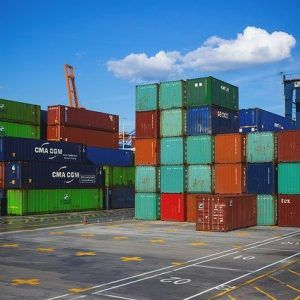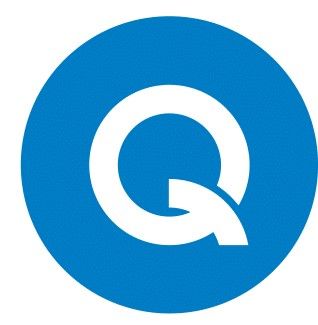By Nicholas Kigen
The global stage is placing its focus on Africa for the foreseeable future, as we are primed for industrialization over the next few decades. This means that there is a lot of money to be made over the next decade in Africa and Kenya. With investments from foreign entities flooding the scene, our leaders have to be vigilant to ensure that any deals made are for the benefit of Kenyans now and the future generations to come.
Ensuring good deals are made is a tall order, due to the way the world is getting more interdependent, and those without negotiating power more often than not get the short end of the stick. It boggles the mind how one would bargain with a nation that is a superpower. Being on the backfoot of negotiation does put one in a precarious position.
As a developing nation, we tend to get the end of bad deals. I believe this to be true of any developing nation. Constantly, we fall prey to foreign investment deals that would indicate that the outside influence is getting a lot more out of our nation than the people who reside within its borders. These investments do make a difference in the country.
Infrastructure, in particular, does get a significant boost. However, while we do gain, the investors reap a whole lot more from our country. Now, I am not oblivious to the fact that investment is meant to work that way, you put Ksh. 20,000 into a business, you earn Ksh. 40,000 a few months later. Investors do need to see the benefit of what they are choosing to spend their resources on. It is just the nature of business. In the business of countries, the amount of money involved in the making of investment deals balloons up to enormous proportions. Large investments, do have a chance of large dividends, and it is no stretch of the imagination to say that a foreign investor especially another country will want to make sure the chances of that are as close to 100% as possible.
With large investments, the investor does not only gain in a monetary sense, they also receive intangibles. Favours. IOUs. These are hooks that dig deep into a country and are difficult to shake off or remove. It is unusual for these intangibles to be called upon soon after the completion of a deal, but when they are called upon, they usually bolster the outsider and undermine the beneficiary of the investment.
I take you to a local residential shopping centre that is close to my abode. It is a beautiful shopping centre. The aisles are full to the brim with all kinds of products. The shelves are never empty. Looking for fish, one will find tons of tilapia, arranged inside a freezer, all of it imported from abroad. Nowhere will there be fish from our local lakes.
Frustration usually wells up inside of me whenever I see this. As a country, I believe we have failed the local economy, the small business person. Imported fish is sold at a lower price compared to fish that has been caught within our borders. The fish that has travelled more than 1000 kilometres is sold cheaper than what is caught relatively a stone-throw away. Truly it is shocking.
One can try and explain this away by using economies of scale of large foreign fisheries, but I believe this to be the work of those intangibles. I am positive that one can find examples of the hooks from outside investments if they just look. With the monetary gain a foreign presence gains as well as the intangibles that they undoubtedly hold against us, a foreign investor is likely to have some sway in a country. With that sway, I would say we are teetering on the edge of neo-colonialism. Or maybe we have already crossed that threshold?
The government will keep making these deals because they are nectar. Successful infrastructure projects will get politicians re-elected. However, this just sinks the country deeper into a murky world of intangible debt that can limit the growth of Kenya. Without serious sacrifices, the hole we are digging will only deepen.
Given my newfound powers as leader of this nation, I would fervently try and reduce our dependence and subservience to foreign investors. If running a dictatorship, implementing the changes would not be dragged along by a lot of red tapes. It would be ideal. However, Kenya is a democratic republic with laws to uphold and follow. Not being as powerful as the outsiders that hook our nations tightly, my approach to this would need to be multifaceted.
Marketing is a powerful tool. It is no wonder that multinational co-operations spend billions on their marketing teams annually. I would seek to employ the same tact. I would put money in advertising Kenyan products as unrivalled in quality. Currently, the local perception of goods made in Kenya is low. I would aim to change this. A massive countrywide campaign to better position Kenyan goods. Should this be successful, Kenya will be well on its way to boosting its local industries. Local tilapia will be in the freezer at my local shopping centre at competitive prices. The small business owner also needs to be taken care of to jumpstart the manufacturing sector. Currently, the barriers to entry are high.
A local news story of a local entrepreneur making USB cables caught my attention recently. He complained, as a small business he is still expected to pay the same level of taxes as large cooperations operating in Kenya which limits his growth capacity. This needs to change.
With the change, there will be a lot of sacrifices, I do not know in what form or to what degree, however, take solace in that it will be for a purpose.
***
Nicholas Kigen is currently a student. He was brought up in a modest family in Eldoret town, and has, over the years acquired a love for technology, philosophy, and the general human condition. Nicholas is confident enough to build a computer, and during the pandemic, he learned and developed a passion for cooking. He has 2 dogs, Snowy and Spotty that he absolutely adores.





